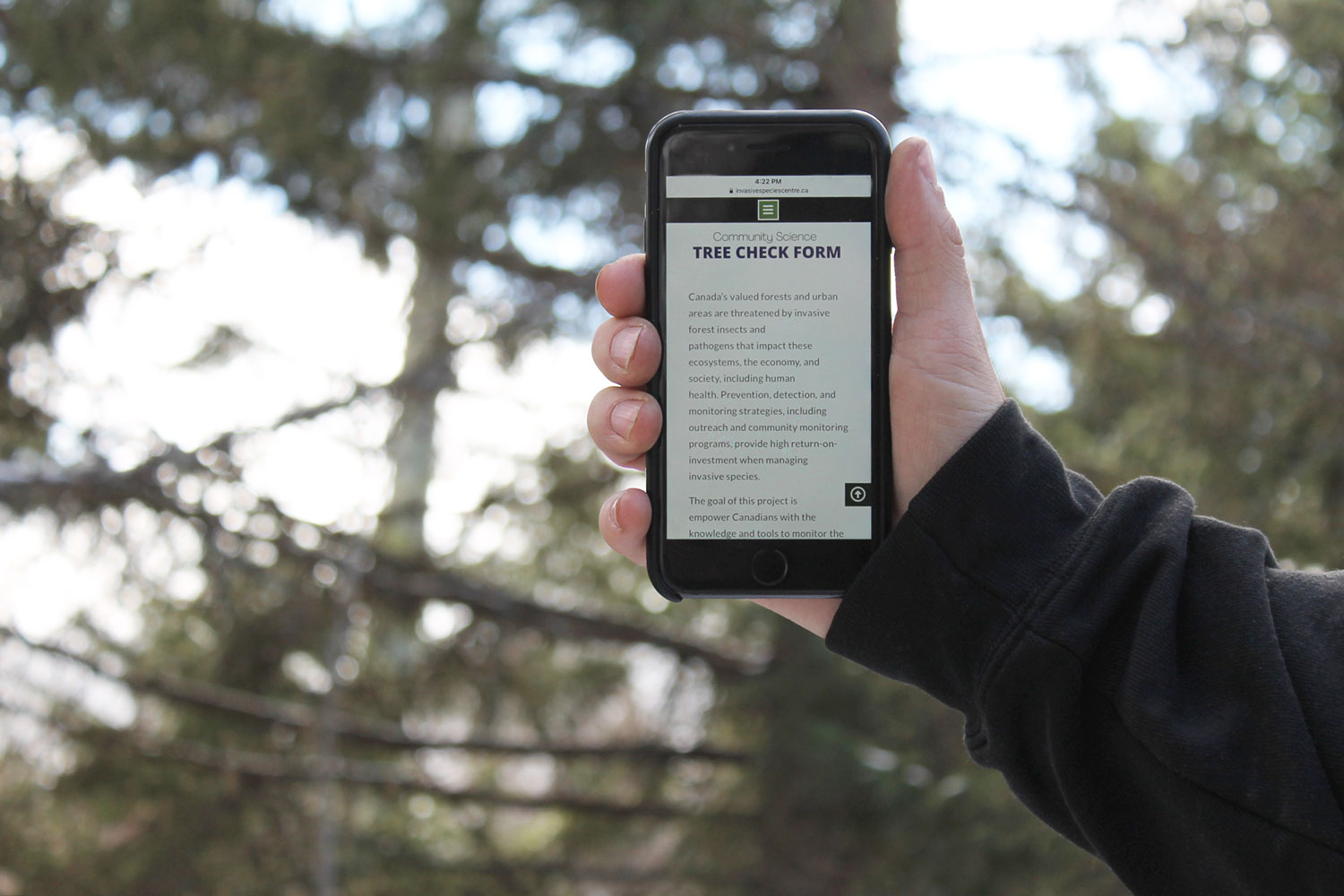
The Invasive Species Centre is excited to announce the launch of the Community Science Tree Check Campaign. This initiative aims to support and promote tree checking, along with the outreach and monitoring efforts of the Canadian Food Inspection Agency (CFIA), the Invasive Species Centre, and other partners in the fight against invasive forest pests and pathogens that threaten Canada’s trees.
Invasive insects and pathogens threaten Canada’s forest ecosystems (both natural and urban), the economy, and society, including human health. Continuous community monitoring of tree health will help support the CFIA’s forest pest surveillance program and enhance early detection and rapid response while providing a better understanding of overall forest health conditions. Prevention and detection strategies, including community monitoring programs such as this, are the most economical way to manage invasive species because it costs less to manage them when you catch them early.
Community science harnesses local knowledge, collective action, and empowerment to help improve conservation results. It links to ecosystem-based management, and environmental sustainability and is an effective ecosystem monitoring tool. Empowering volunteers and professionals to take part in this Canada-wide effort will boost detection rates and lower future eradication costs.
The Invasive Species Centre and CFIA are excited to join forces with Scouts Canada on this project to increase invasive species monitoring as part of their summer programming. Scout groups across Canada will be playing a vital role as community scientists, helping contribute to the status of tree health in Canada. Get outside and become a community scientist, just like the Scouts!
“With several first detection stories in Canada coming through online community scientist reporting tools, like elm zigzag sawfly and box tree moth, the Community Science Tree Check Campaign aims to engage those who are passionate about maintaining healthy Canadian ecosystems and get involved in community science projects”, states Lauren Bell, Program Manager at the Invasive Species Centre.
To get involved, community members are invited to open the tree check form and survey the trees in their neighbourhood. Available in both English and French, this form can be submitted an unlimited number of times so that your monitoring efforts can be continuous and up to date! Even if your trees appear healthy, entering that information helps us better understand the status of Canada’s tree health.
To learn more about this project and what to look out for when checking your trees, visit the ISC website. Check out the project video here.
